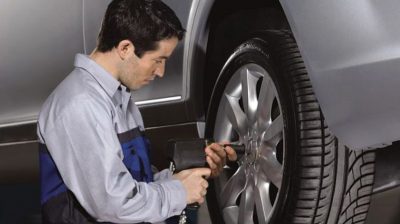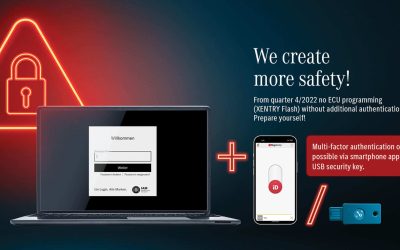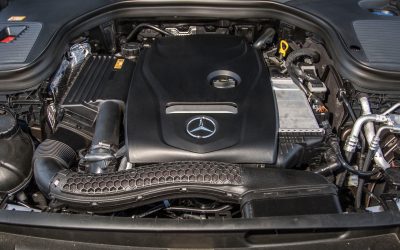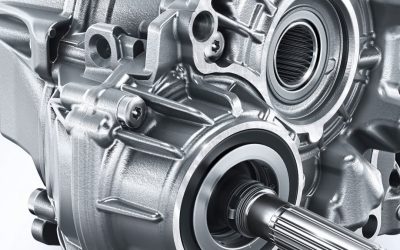
Familiar with the Mercedes-Benz Certified Collision Center program? This growing program is a customer-focused network of Mercedes-Benz Certified Collision Centers allied with Mercedes-Benz dealerships. The Mercedes-Benz Certified Collision Program was developed with one goal in mind: to provide valued Mercedes-Benz customers with a seamless and satisfying after-collision repair experience. Employing skilled, thoroughly-trained technicians and appropriate equipment, Certified Collision Centers are adept at bringing a Mercedes-Benz car or SUV back to before-collision condition.
These fully-equipped and professionally-staffed centers are either stand alone facilities, or are located at a dealership.
Centers Meet Stringent Requirements
To become a Mercedes-Benz Certified Collision Center, MBUSA analyzes the recommending dealer’s Area of Influence (AOI) and Units in Operations (UIO), and determines the business need for a Certified Collision Center in the area. If the application is approved, MBUSA’s audit partner will conduct an on-site visit.
If the collision center passes the on-site certification audit and meets all program standards, it will be officially certified as a Mercedes-Benz Certified Collision Center for two years, contingent on dealership sponsorship and meeting continuing training requirements.
“Training is what really makes the Collision Center certified,” notes Benito Cid, Collision Business Manager, Mercedes-Benz USA. “A shop needs
to utilize the available collision courses — and continue to do so — to keep the title of being Mercedes-Benz Certified.” To maintain certification, a shop needs to have at least two hands-on training sessions annually, and four e-learning courses per year, per facility, beginning with the calendar year of certification. Should a facility not be able to meet requirements by the end of the second year following certification, the shop will be temporarily suspended from the Mercedes-Benz Collision Program, and can be listed again as a Certified Collision Center once the facility can show proof of completing all classes.
Training requirements are per shop, not per technician. If the shop employs five technicians, one technician may complete a course, a second technician in the facility may take another course, and so on. In addition to training, requirements for getting and maintaining certification are utilizing the recommended tools and equipment. These include:
- Resistance welders that meet Daimler global specifications
- Welders tested for power supply and duty cycle for all markets, for use on boron steel, and that will not change alloy structure during welding
- Special aluminum rooms separated from steel work in the shop that must have a separate dedicated tool set and prevent contamination from steel dust, and dust extractors used if sanding aluminum with #400 or finer paper to avoid explosion risk
- Vehicle benches and jigs to ensure proper positioning and structural accuracy
- Electronic body measurement devices including vehicle-specific Celette and universal Car Bench
- During a post-accident alignment check, measurement results will be compared to the original Mercedes-Benz specified values, when available
Recertification Ensures that Centers Remain on Track
Every two years, Certified Collision Centers are evaluated for recertification, and undergo an on-site audit. If the collision center meets requirements, the Mercedes-Benz Collision Team will extend the collision center’s certification as a Mercedes-Benz Certified Collision Center for an additional two years. Important Collision Center features include:
- Mercedes-Benz Roadside Assistance will tow any Mercedes-Benz vehicle to a Certified Collision Center or dealership free of charge after a collision
- Certified Collision Centers have total accessibility to training courses and proper repair procedures, including STAR TekInfo, CV TekInfo and WIS (Workshop Information System) that ensure that the centers accurately repair all Mercedes-Benz vehicles according to Mercedes-Benz standards
- Priority handling and appointment scheduling for Mercedes-Benz customers
- Car wash outside and cleaning inside prior to customer delivery
- Test drives of completed vehicle available on request.
Customers and insurance companies can easily find the closest Certified Collision Center by using the locater on mbusa.com, or mbcollisioncenters.com. Those wishing to sign up to become a Mercedes-Benz Certified Collision Center should check out the procedures summed up below.
The Mercedes-Benz Certified Collision Program
With a range of approved tools, equipment, and repair methods, a Mercedes-Benz Certified Collision Center has what it takes to bring a Mercedes-Benz vehicle back to its pre-collision condition. Mercedes-Benz
Certified Collision Repair Facilities exist to ensure
that a Mercedes-Benz vehicle owner or driver receives the safety and craftsmanship that he or she has come
to expect.
The program utilizes three tiers:
Base. Authorized to perform all collision repairs on all Mercedes-Benz passenger vehicles with the exception of aluminum structural repairs;
Elite. Authorized to perform all collision repairs on all Mercedes-Benz passenger vehicles including aluminum structural repairs;
Commercial Vehicle. Authorized to perform structural and cosmetic repairs on Sprinter and Metris Vehicles.
Benefits of participating in the Mercedes-Benz Certified Collision Program include Profitability, Exclusivity, Convenience, Accessibility, Visibility and Assurance that Mercedes-Benz Roadside Assistance will tow any Mercedes-Benz vehicle when needed. Enrolling in the Mercedes-Benz Certified Collision Program starts when the collision center and a sponsoring dealer fill out an online application (at mbcollisioncenters.com) indicating the dealer and collision center understand the expectations and mutual benefits of the program. The application will be forwarded to the MBUSA field staff for their signatures of approval, then to the Mercedes-Benz Collision Team for final evaluation.
More information on standards, requirements, program fees and greater detail on the complete program for either Dealer Owned Collision Centers or Dealer Sponsored Collision Centers is at mbcollisioncenters.com.
Download PDF 〉





0 Comments